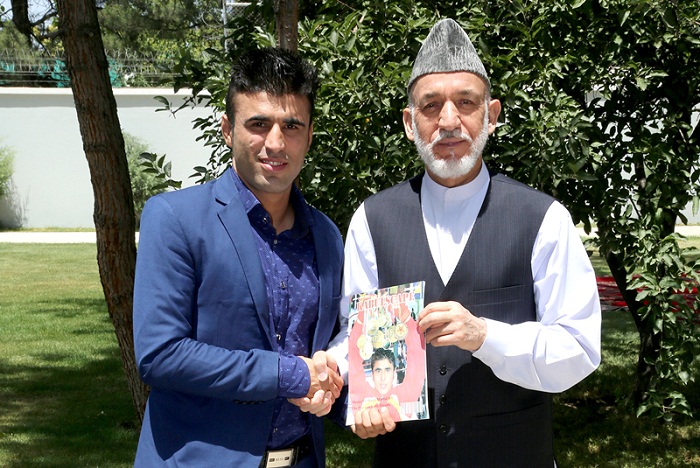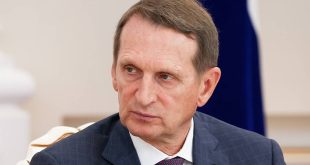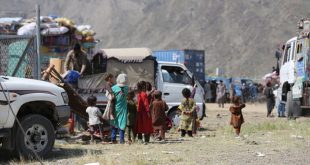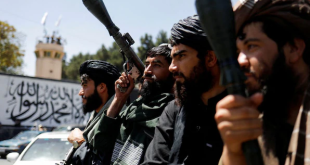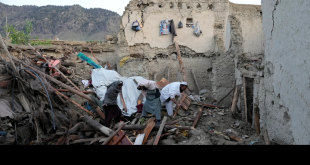Every year during the two Eid holidays, hundreds of men, women and children from all over Afghanistan line up outside Hamid Karzai’s house, hoping to meet the former Afghan president.
For those six days on the Islamic calendar, Karzai is the embodiment of the elder statesman — the first modern Afghan leader to play such a role after decades of war, assassinations and political instability.
Freed from 13 turbulent years in office, Karzai is viewed by many Afghans as a sociable and engaging father figure. He poses for pictures with visitors, shakes hands and asks the children about their hopes for their future.
The warmth he displays now is a sharp departure from his successor, President Ashraf Ghani, often described as a temperamental intellectual who has been shackled by an economic downturn, an unemployment rate estimated at 40%, rising civilian casualties and a resurgent Taliban-led militancy. The contrast — combined with memories of the billions of dollars of foreign funding that flowed into Afghan cities following the 2001 U.S.-led invasion — has led to a nostalgic reimagining of Karzai’s presidency, with many Afghans saying only he can deliver the country from its problems.
In an interview at his home, a few hundred feet from the presidential palace, Karzai rebuffed the idea, saying Afghans must look to the future.
“For me to return means that we have not done well,” Karzai said. “We should not be failing; we should succeed.”
It is a sharp turnaround for a man who left office in 2014 exhausted, angry with his U.S. allies and increasingly unpopular. Afghans clamoring for change lined up by the thousands that year to register to vote for the first new government since 2001.
Now, it is not only ordinary Afghans who look to Karzai. The road leading to his home is also often filled with armored cars belonging to current and former Afghan officials.
Among those with whom Karzai meets are two of the government’s most ardent critics: Mohammad Umer Daudzai, a former interior minister, and Abdul Rasul Sayyaf, a former Islamic militant commander and powerful lawmaker. Daudzai and Sayyaf have formed the Council for the Protection and Stability of Afghanistan, a collective of former Karzai-era officials calling for reforms in the current government.
The meetings have prompted rumors that Karzai is actively plotting against Ghani’s government — a charge the former president denies.
“People come to me. People see me,” Karzai said. “It’s inevitable that such narratives will emerge.”
Officials in Ghani’s government sometimes take swipes at Karzai by referring to Afghanistan’s troubles, including extensive corruption, as “inherited” and part of his “legacy.” Karzai counters that both Ghani and Abdullah Abdullah, the chief executive of a unity government, and many of their top deputies all served in his government.
“[Ghani] is also a legacy of mine. So is Abdullah,” Karzai said. “Rather than going into the past, they should begin to deliver — not talk about the past [because] they were part of the past with me.”
Karzai refrains from criticizing the government directly, but he has differed strongly with Ghani’s approach to the war, which initially focused on reaching out to Pakistan to help make peace with the Taliban. Where Karzai frequently spoke out against civilian casualties from U.S.-led military operations and sought to curb the foreign military presence in Afghanistan, Ghani has been muted in his criticisms of Western countries and sought closer cooperation with the United States.
After President Obama drew down U.S. forces in 2014 and promised to withdraw all troops by the end of his presidency, his administration announced this week that it would keep 8,400 troops in Afghanistan through the remainder of his term — a recognition that Afghan forces are struggling to keep the Taliban at bay. The Pentagon also has resumed airstrikes specifically targeting the Taliban, a move that Karzai would have denounced, but about which Ghani has remained largely silent.
The U.S. and its allies “should not speak of more attacks,” Karzai said. “They must not justify their presence because there is war. They must justify their presence because they are bringing peace.”
While Karzai was sometimes seen as being too soft on the Taliban — drawing criticism for referring to the insurgents as “disgruntled brothers” — Ghani has ordered Afghan security forces to step up operations against the militants and praised U.S. drone strikes for helping to reduce the foothold of fighters claiming allegiance to Islamic State.
Karzai said Ghani has not been vocal enough about increased Afghan deaths, including from U.S. drone strikes that take place in remote parts of the countries. The identities of those victims are often unknown.
“I encouraged the president to speak about it,” Karzai said. “I hope that happens because it is the Afghan people [and] their lives that we are responsible for.”
Karzai returned to a familiar theme: that the U.S. has prolonged the conflict with its policies. He urged more focus on rooting out militants in Pakistan, where former Taliban leader Mullah Akhtar Mohammad Mansour was killed in a U.S. drone strike in May.
“By bombing and droning Afghans or Afghan villages, you will not win this war because it isn’t here,” Karzai said. “We are victims.”
In the past, Karzai had accused foreign governments of making a “film” out of his country — depicting Afghanistan as a desolate and bloody war zone. He preferred to focus on his accomplishments, which he said were helping to rebuild government institutions from the rubble of the Taliban era, promoting a free media and putting large numbers of Afghan children in school for the first time.
He has urged young Afghans, who are leaving the country in their largest numbers since 2001, to stay behind and help build their homeland.
“[Afghanistan] does break your heart every day … but lovely things do break your heart,” Karzai said. “This is a romantic country, and romance breaks your heart — so sure, it will break your heart. But it’s a lovely country.” (LaTimes) by Ali M. Latifi
 Afghanistan Times
Afghanistan Times
